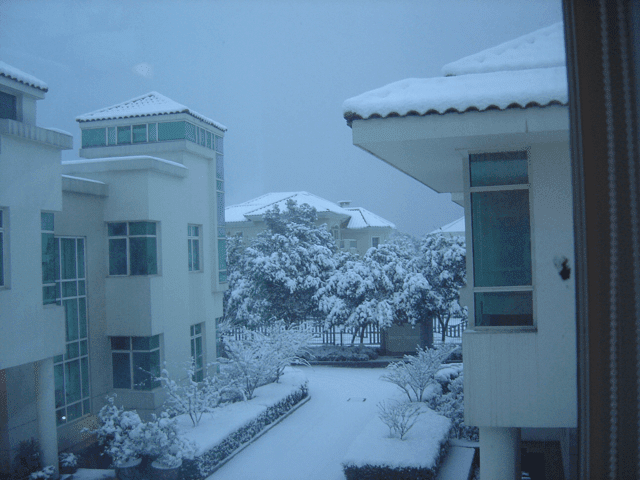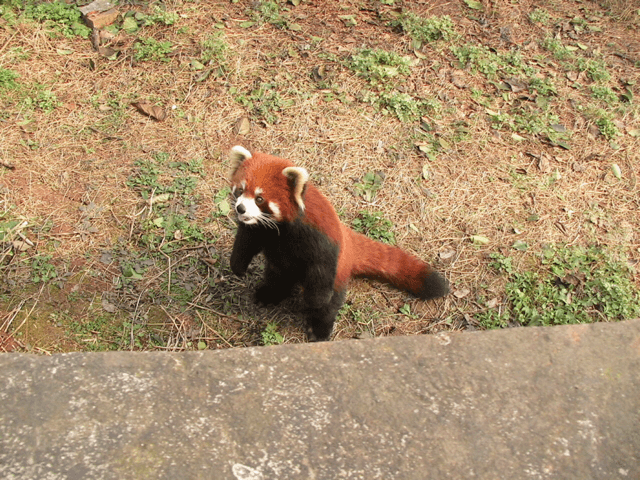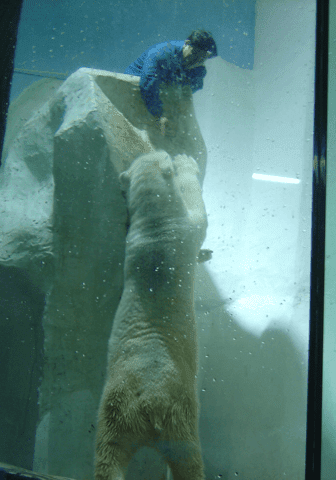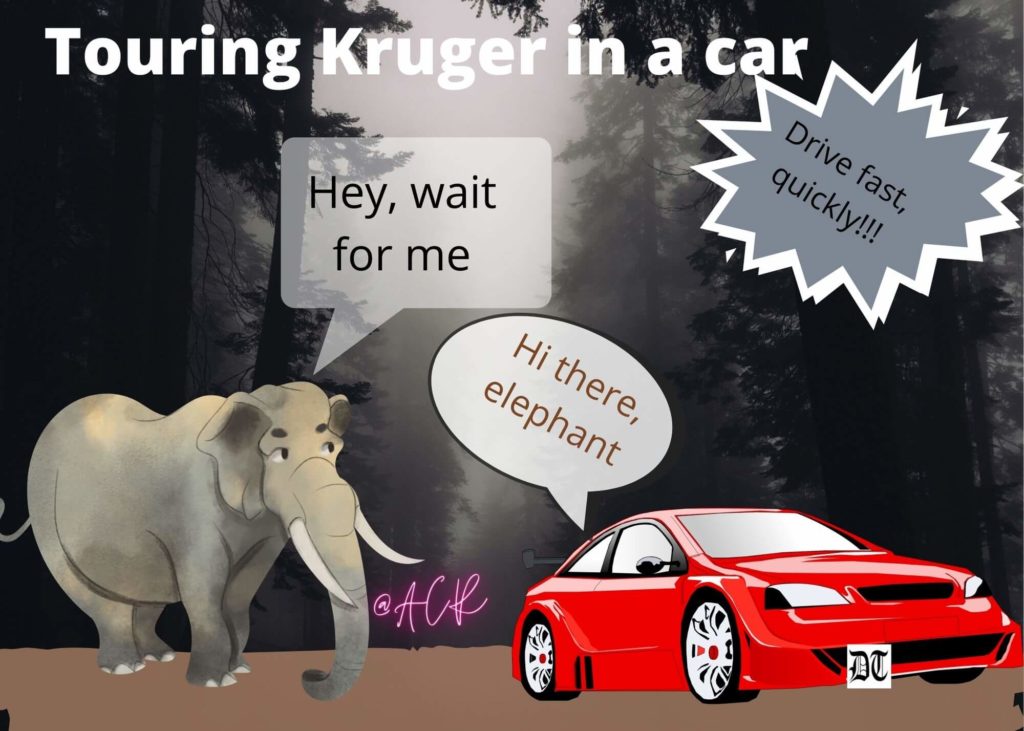In this updated chapter from In the Land of Dragons (ILD), Mitali talks about Christmas, Pandas, her sons, with flashbacks and flashforwards to India, her theatre group, zoos, Singapore, and more. An exclusive for Different Truths.

A star was born around 4 BCE1 and subsequently named the Star of Bethlehem. Was it a nebula, a comet, or just planets together in an ethereal dance? It happened again in 12262, a year before the death of Genghis Khan3. And this year, the Christmas star4 on December 21st — might be heralding a note of goodwill and peace, a much-needed commodity in a COVID-worn divided world. The Star of Bethlehem or the Christmas star guided the three wise men to Christ with gifts. They came from different parts of the world. National Geographic5 tells us: “Later tellings of the story identified the magi by name and identified their lands of origin: Melchior hailed from Persia, Gaspar (also called ‘Caspar’ or ‘Jaspar’) from India, and Balthazar from Arabia.”
All over the world for centuries, the day of Christ’s birth is celebrated with prayers, pageantry, and holidays — except in China. That is the only country I have lived in that does not treat Christmas as a holiday but, as a business opportunity…

All over the world for centuries, the day of Christ’s birth is celebrated with prayers, pageantry, and holidays — except in China. That is the only country I have lived in that does not treat Christmas as a holiday but as a business opportunity, which unfortunately has become a reality now for the majority of the world. However, that is also the only country where we had a real potted pine for a Christmas tree! We were so excited to have a real tree. We dressed it up with Christmas decorations and tinsel and sat gazing at the flickering lights on it in a darkened room…
Though we are not Christians, we celebrate multiple festivals given the opportunity. I have been away from the culture to which my family subscribed from birth, having been born and brought up in Delhi. We belonged to a group called probashi (expats) in my mother tongue Bengali, which none of my playmates understood. I never studied Bengali in school and picked it up only in passing which in a way makes me at the most a translator from the language to English for the rest of my life and I have no regrets. But then, writing for me has always been a matter of ideas rather than just the language. Writing is a way of communicating with everyone.
Rajat Kapoor was Tartuffe in the title role as I played Flipote, a silent one with only a scream, a standby in place of an actress who had developed breast cancer. Rajat was otherwise a nice person.
Forty years ago, my friends and I in India had found commonality in using English — perhaps, I was deterred from preferring Hindi because every time I spoke the language, people laughed at my accent — ‘Bangalan’ was the label they used! In my early twenties, when I joined Chingari, a theatre group in New Delhi, for a brief juncture, many, including a well-known film Bollywood actor (he was not one then), made a sport of my accent. Rajat Kapoor was Tartuffe in the title role as I played Flipote, a silent one with only a scream, a standby in place of an actress who had developed breast cancer. Rajat was otherwise a nice person. But I still remember how they laughed, Rajat and Atul Kumar, my junior in university and the one who initiated me into Chingari, when the director, a non-Hindi speaking academic from Jawahar Lal Nehru University called Madavane, said I had stage presence and the next time, I could play the heroine.
I admit my accent never stopped being imitative of my grandmother’s! We laughed together because it was all teasing in goodwill — there was no reason for me to feel offended or fight about the imposition of any language or culture. My accent in Hindi was also a good reason for me never to try to enter the theatre or film industry in India. I loved Bengali and my own accent too much to change it! However, I cannot help but admit that Bengali to my ears sounds like a sweet language!
When I was younger, Santa visited our home. Once a few of my cousins and I tried to stay up to catch him but alas… we never did!
Having been a probashi from birth, made it quite easy for me to adapt everywhere. The first part of our major five-day festival, Durga Puja, was never a holiday in school, only on the last two days were all the educational institutions and offices closed for Dussehra in Delhi. My friends celebrated different festivals with varied rituals. Somehow, that never bothered us. We all played in the evening together and celebrated yuletide with cypress branches as Christmas trees and new year with a bonfire! When I was younger, Santa visited our home. Once a few of my cousins and I tried to stay up to catch him but alas… we never did!
In Singapore, Christmas is big. And when Aditya was four and in kindergarten, he did a lovely performance on stage for a Christmas concert. However, the year before the concert, he did not like Santa at the kindergarten fancy dress cum Christmas party. He even tried to beat Santa with his pixy magic wand — mind you he was dressed as Santa’s helper! The year after his dance performance, however, he was five and chasing Santa in a shopping mall to find out how the reindeers and sleighs ‘flew’ and more secrets about his factory at the North Pole. He had a thousand and one questions which alarmed Santa doing rounds of shops and handing out candy to children. The poor man in a red suit with his sack was visibly running away from Aditya!
In China, we did not have many interactions with Santa, except at school. As for Aditya, he was ten years old by then and had outgrown Santa.
In China, we did not have many interactions with Santa, except at school. As for Aditya, he was ten years old by then and had outgrown Santa. For me, the myth continues to reiterate the concept of learning to give without looking for a return. We always had Santa ‘give’ gifts to our sons till they turned eight. I still remember how eager Aditya was to enlighten his sibling about the identity of Santa. And his brother continued to be reluctant to start disbelieving in Santa even at nine!
When he was four-years-old Surya also danced in a school function at Suzhou, this time to a Christmas carol, ‘Let it snow’6. And that winter, it snowed like cats and dogs in Suzhou. We had a layer of thick snow post-Christmas.

Pictures of snow 
Pictures of snow
The funny thing was snow mostly started in January middle or end in China and it would turn white around the Chinese New Year, which is really like their Christmas or a Bengali’s Durga Puja. It was as if the snow knew when to add to the festivities.
The boys played at building snowmen and igloos. That year they built a tall snowman with the help of one of the fathers. It had literally a carrot for a nose…
The boys played at building snowmen and igloos. That year they built a tall snowman with the help of one of the fathers. It had literally a carrot for a nose, a tinsel scarf and it was more than six feet tall. It stood in the middle of the common play area. We had so much snow that Aditya and Surya also built their own personal snowman on our patio.
Christmas was a holiday in international schools — they gave more than a one-month-long vacation. Before school closed, we would have not just school concerts but also endless parties and gift exchanges. We had cookie exchanges, breakfasts, a turkey lunch, and more. All of us baked and exchanged and ate each other’s cuisines. There were Christians, Buddhists, free thinkers, Muslims, Hindus, and Jews — women from all backgrounds meeting to eat and greet! I developed a love for Turkish cuisine; Dutch, German and Italian cookies and cakes; herbal teas from Germany; kebabs from Pakistan, and even Libyan dishes while in China. I was most touched when at my Pakistani-British neighbor’s farewell, the host, her Libyan best friend, cooked mutton instead of beef, and such a scrumptious dish it was. I was the only non-beef eater at the party. In fact, what touched me was all these women from different religions, cultures, and heritage had kept beef out of the menu completely. Whereas Indians I know here in Singapore, eat beef when we go out to lunch. In Kerala and Goa, they do have beef as part of local cuisine. I discovered that while helping in a charity drive in Suzhou, where at the Indian table, the volunteering housewives insisted on having beef vindaloo despite my objections about it not being a dish representative of the majority of the nation.
Post the Christmas parties and balls, most of the expats returned home. And we went to places like Guilin, Nanjing, and Chengdu.
One Christmas, we spent time with the pandas in Chengdu.
The pandas lived in a reserve in the Panda Research Centre. They were cute and well looked after. We saw funny red pandas, which look almost like foxes.
The pandas lived in a reserve in the Panda Research Centre7. They were cute and well looked after. We saw funny red pandas, which look almost like foxes. They stood up on their hind legs and posed for the camera. And there were huge, rotund black-and-white pandas, which spent most of their time eating and sleeping.

Panda 
Red Pandas
There was one panda that could be called the Papa Panda. Papa Panda had a huge stick of bamboo, which he peeled and ate. First, he sat with the stick of bamboo and chewed. Then he lay on the grassy slope and chewed. He relished his stick of bamboo. The peeled green bark of the bamboo fell on his huge, round paunch as he continued with the endless task of masticating — his full focus was on eating. It was amazing to watch him enjoy his food. Crowds gathered to watch him eat. Then there was another panda, sitting close to where Papa Panda relished his snack.
This one could be the Mama Panda though I admit I could not guess the gender of either. Mama Panda waited for Papa to finish eating and looked thoroughly bored.
This one could be the Mama Panda though I admit I could not guess the gender of either. Mama Panda waited for Papa to finish eating and looked thoroughly bored. Her body language was like that of Penelope waiting for Odysseus to return home – patient, long-suffering, and a trifle bored. She waited and waited … till she fell asleep! After some time, having finished the bamboo stick, Papa got up — all the bamboo from his paunch fell to the ground — turned his back on us, and went away. Mama was fast asleep. It was like a domestic scene re-enacted — mamas eternally waiting for their spouses to give them time!
We enjoyed watching the pandas so much that Aditya and his friends went back in a couple of years at the end of grade ten to help look after pandas in another reserve close to Chengdu. He came back with fond memories of the reserve and the pandas. I just remember that Aditya said he ate caterpillars with noodles – a local delicacy – and he helped clean panda poop. I remember shaking hands with one of the teachers who went with them with a lot of trepidation the next year. That was because the teacher had a photograph holding a spindle of panda poop in his gloved hands. It was spindle-shaped and golden and made, I heard from Aditya, of pure masticated bamboo! I knew about Aditya’s trip only from photographs and stories carried back by him for it was his first independent trip away from us with only two teachers in tow. It had been organised by the boys themselves and the school did not have any responsibility. To me, it was a little frightening not to have the school in charge. But now Aditya travels far and wide, sometimes, doing his own bookings and that of his friends — not to clean panda poop but for other reasons.
The other bear we saw around Christmas was in Nanjing. They were polar bears at the Nanjing zoo. They were really tall – taller than men who fed them from a high steep ledge.

The other bear we saw around Christmas was in Nanjing. They were polar bears at the Nanjing zoo. They were really tall – taller than men who fed them from a high steep ledge. And there were snow foxes. We liked the animals at Nanjing, too. They had noisy seals that seemed to be conversing in delight across glass barriers. Aditya was especially delighted. And Surya was fascinated by the towering height of the polar bear, a couple of metres tall. The polar bear liked to be petted and reached out to a zoo employee inside his enclosure to get petted. Surya was also fascinated by a cement igloo inside the indoor zoo. He kept running around the igloo with a toy suitcase in his hands. Only the lure of the polar bear seemed to get him away from the igloo.
In China, we visited zoos in Suzhou and Shanghai too. The animals were caged but kept in a crowded small area, unlike what we had been used to in the Singapore Zoo.
In Singapore, the zoos are fabulous, with adequate facilities for both men and animals. It is an open-concept zoo. But, their bears look a bit faded, including the polar bears – maybe the weather is not right. Once, we went for an elephant ride there. My husband, as usual, did not ride. He said he needed to take the pictures. It was a fun, bumpy ride. Aditya said he felt ticklish because of the elephants’ movements.
In China, there were no elephant rides but their camel ride at Shanghai Wild Animal Park was a novelty for us. The next time, we had a camel ride, we were in Jaipur.
In China, there were no elephant rides but their camel ride at Shanghai Wild Animal Park8 was a novelty for us. The next time, we had a camel ride, we were in Jaipur. It was in Chowki Dhani9. It was night. They had a fair where they have fire-eaters and palmists and camels. The fire eaters were amazing to watch. And then Surya wanted to ride the camel. He could not go alone. I was forced to volunteer as my husband with his anti-animal riding policy, rides only machines, like cars, trains, planes, and roller coasters. And Aditya was sleeping off some heady medication — he had vomiting, and had a stomach upset, a common occurrence whenever my children visit India.
The camel driver at the fair asked us to sit on the camelback while the creature was sitting. We climbed three stairs. He asked me to get on first. I put one foot up and put it on the camel. It felt furry and bony under the quilts. I pulled myself up and sat astride. I was given a rein of sorts. Then Surya was put before me and at last, the camel was made to get up. It went to ‘see’ first and ‘saw’ then. Quite an experience. Surya shouted in glee. My mother-in-law, who watched my face from the ground level, suggested I get off and we dump the ride. But I hung on — too stunned to respond! Surya continued delighted. As the camel picked up the pace and ran on the uneven fairground, I felt I was on a stormy sea or, maybe, in the middle of an 8.9 Richter scale earthquake or riding the waves during a tsunami — take your pick, but you have the gist.
When I got off, I had lived a hundred years though most people said the ride was only of a few minutes’ duration. The thing is maybe the animals needed the training to be gentler like the ones in Shanghai…
When I got off, I had lived a hundred years though most people said the ride was only of a few minutes’ duration. The thing is maybe the animals needed the training to be gentler like the ones in Shanghai and then, one could visit the Jaisalmer Golden Fort, immortalised by Satyajit Ray and Soumitra Chatterjee in the Sonar Kella10 (The Golden Fort), on camelback – one major component on my bucket list. The other places on the list that I would want to visit on camelback are the Egyptian pyramids and temples.
At Shanghai, they had platforms to climb on the standing camel. And the camels never got up or ran. They ambled. The other interesting feature in the Shanghai Wild Animal Park was one where humans visited the animals caged in an air-conditioned bus and the creatures roamed around freely in their reconstructed natural habitat. Sometimes the bears or leopards liked to chase the bus. We did get chased, though I don’t recall what animal as I could not see anything from the seat. But I do remember being chased at Kruger11 by elephants, not once but twice within three days!
We were touring Kruger in a car when my thirteen-year-old Surya shouted for excitement on seeing a huge elephant gently move towards us. The animal was equally excited by the loud sound emanating from a bright red Subaru.
We were touring Kruger in a car when my thirteen-year-old Surya shouted for excitement on seeing a huge elephant gently move towards us. The animal was equally excited by the loud sound emanating from a bright red Subaru. It trumpeted and ran towards our car which sped away. The next time we were almost chased by a gigantic elephant was when while watching a herd returning from a water hole, the hugest stud went missing. While we and more cars watched and waited for the road to clear, cameras started getting aimed at us. Though we were used to being centres of attraction in the early part of our stay in China, in South Africa, its heterogeneous population, while being friendly, ignored us for being part of humanity – no different from the rest. We were not a novelty there. But, here they were looking at us from within their car. Some were even gesticulating strangely. Finally, our guide noticed in his rearview mirror – the elephant stud was behind us looking mightily displeased. Our Subaru was in its way. We drove and drove fast and away from being made into pulp by an angry bull!

Of course, Shanghai zoo was nothing compared to the open stretches of wild Africa. But it was fun watching the animals from the bus and a novelty for all of us as we had never been to a zoo like this one with plenty of animals to give us a chase and commentary inside an air-conditioned bus from a guide. My husband and I, before we had kids, did, however, have a train ride at the Minnesota zoo where animals dotted the snowscape. As a family, we had been for the rides in the Singapore Night Safari and zoo. These rides were more open but as the animals could barely be savoured from the tram, we prefer walking.
I have a bad habit of digressing – from Christmas and pandas, I have digressed to elephants, camels and maybe would have moved on to even lions – some of them had escaped at Kruger while we were there. But, that is again another story where we heard the free lions roar – the Kruger story12. For now, I would like to pen off by wishing all the readers a very Merry Christmas!
References:
1http://www.astronomynotes.com/history/bethlehem-star.html
2https://wgem.com/2020/12/10/bethlehem-star-will-be-visible-for-the-first-time-in-800-years/
3The Mongol Empire: Genghis Khan, His heirs and the founding of Modern China by John Man, Penguin Random House UK, 2014
4 https://earthsky.org/human-world/was-the-christmas-star-real
5 https://www.nationalgeographic.com/culture/people-in-the-bible/three-kings-magi-epiphany/
6 https://www.41051.com/xmaslyrics/letitsnow.html
7 http://www.panda.org.cn/english/visitor/tickets/2013-09-12/2439.html
8 https://sg.trip.com/travel-guide/shanghai/shanghai-wild-animal-park-75624/
9 https://www.holidify.com/places/jaipur/chokhi-dhani-sightseeing-11774.html
11 https://www.sanparks.org/parks/kruger/
12 https://432m.wordpress.com/2017/07/21/looking-for-lions/
Visuals by Different Truths and the author





 By
By
 By
By

 By
By